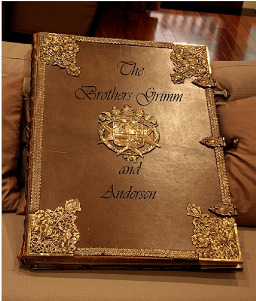
The Snow Queen
~Alright, my little ponies, it is time for me to tell you a tale. Believe me, this tale will make anything Wilhelm or Jacob tell you seem like trifles and Old Mare's Tales.~
*Feeling a bit overconfident, aren't we?*
~Does it count as overconfidence if it is true?~
*Well considering you're the only one who knows anything about this story, I think so.*
~Oh hush and let me tell my story. By the way, where's Jacob?~
*Isn't he here?*
~Now why would I ask that if he was here?~
*Fair point. I don't know where he is, he told me this afternoon he had some errands to run but he'd be here before you started.*
~Well he's not here now.~
*Do you think we should wait for him?*
~I'm not going to. If he's late, he's late, and he'll explain himself when he gets here.~
*Oh fine.*
~Anyway, compose yourselves, little foals. Snuggle up in your beds and watch the snowflakes fall outside, for tonight, the Snow Queen may visit you.~
Now we are about to begin, and you must attend; and when we get to the end of the story, you will know more than you do now about a very wicked goblin. He was one of the worst kind; in fact he was a real demon. One day he was in a high state of delight because he had invented a mirror with this peculiarity, that every good and pretty thing reflected in it shrank away to almost nothing. On the other hand, every bad and good-for-nothing thing stood out and looked its worst. The most beautiful landscapes reflected in it looked like boiled spinach, and the best ponies became hideous, or else they were upside down and had no bodies. Their muzzles were distorted beyond recognition, and if they had even one freckle it appeared to spread all over the nose and mouth. The demon thought this immensely amusing. If a good thought passed through anypony's mind, it turned to a grin in the mirror, and this caused real delight to the demon. All the scholars in the demon's school, for he kept a school, reported that a miracle had taken place: now for the first time it had become possible to see what the world and ponykind were really like. They ran about all over with the mirror, till at last there was not a country or a pony which had not been seen in this distorting mirror. They even wanted to fly up to to the sky with it to mock the stars; but the higher they flew, the more it grinned, so much so that they could hardly hold it, and at last it slipped out of their hands and fell to the earth, shivered into hundreds of millions and billions of bits. Even then it did more harm than ever. Some of these bits were not as big as a grain of sand, and these flew about all over the world, getting into ponies' eyes, and, once in, they stuck there, and distorted everything they looked at, or made them see everything that was amiss. Each tiniest grain of glass kept the same power as that possessed by the whole mirror. Some ponies even got a bit of the glass into their hearts, and that was terrible, for the heart became like a lump of ice. Some of the fragments were so big that they were used for window panes, but it was not advisable to look at one's friends through these panes. Other bits were made into spectacles, and it was a bad business when ponies put on these spectacles meaning to be just. The bad demon laughed till he split his sides; it tickled him to see the mischief he had done. But some of these fragments were still left floating about the world, and you shall hear what happened to them.
In a big town crowded with houses and ponies, where there is no room for gardens, ponies have to be content with flowers in pots instead. In one of these towns lived two foals who managed to have something bigger than a flower pot for a garden. They were not brother and sister, but they were just as fond of each other as if they had been. Their parents lived opposite each other in two attic rooms. The roof of one house just touched the roof of the next one, with only a rain-water gutter between them. They each had a little dormer window, and one only had to step over the gutter to get from one house to the other. Each of the parents had a large window-box, in which they grew pot herbs and a little rose-tree. There was one in each box, and they both grew splendidly. Then it occurred to the parents to put the boxes across the gutter, from house to house, and they looked just like two banks of flowers. The pea vines hung down over the edges of the boxes, and the roses threw out long creepers which twined round the windows. It was almost like a green triumphal arch. The boxes were high, and the foals knew they must not climb up on to them, but they were often allowed to have their little stools out under the rose-trees, and there they had delightful games. Of course in the winter there was an end to these amusements. The windows were often covered with frost; then they would warm coppers on the stove and stick them on the frozen panes, where they made lovely peep-holes, as round as possible. Then a bright eye would peep through these holes, one from each window. The little colt's name was Kay, and the little filly's was Gerda.
In the summer they could reach each other with one bound, but in the winter they had to go down all the stairs in one house and up all the stairs in the other, and outside there were snowdrifts.
"Look! the white bees are swarming." said the old grandmother.
'Have they a queen bee, too?' asked the little colt, for he knew that there was a queen among the real bees.
"Yes, indeed they have," said the grandmother. "She flies where the swarm is thickest. She is biggest of them all, and she never remains on the ground. She always flies up again to the sky. Many a winter's night she flies through the streets and peeps in at the windows, and then the ice freezes on the panes into wonderful patterns like flowers."
"Oh yes, we have seen that!" said both foals, and then they knew it was true.
"Can the Snow Queen come in here?" asked the little filly.
"Just let her come," said the colt, "and I will put her on the stove, where she will melt."
But the grandmother smoothed his mane and told him more stories.
In the evening when little Kay was at home and half undressed, he crept up on to the chair by the window, and peeped out of the little hole. A few snow-flakes were falling, and one of these, the biggest, remained on the edge of the window-box. It grew bigger and bigger, till it became the figure of a mare, dressed in the finest white gauze, which appeared to be made of millions of starry flakes. She was delicately lovely, but all ice, glittering, dazzling ice. Still she was alive, her eyes shone like two bright stars, but there was no rest or peace in them. She nodded to the window and waved her hoof. The little colt was frightened and jumped down off the chair, and then he fancied that a big bird flew past the window.
The next day was bright and frosty, and then came the thaw—and after that the spring. The sun shone, green buds began to appear, the swallows built their nests, and ponies began to open their windows. The little foals began to play in their garden on the roof again. The roses were in splendid bloom that summer; the little filly had learnt a song, and there was something in it about roses, and that made her think of her own. She sang it to the little colt, and then he sang it with her—
"Where roses deck the flowery vale,
There, Celestia, we thee hail!"
The foals took each other by the hooves, kissed the roses, and rejoiced in Celestia's bright sunshine, and spoke to it as if the Sun Princess were there. What lovely summer days they were, and how delightful it was to sit out under the fresh rose-trees, which seemed never tired of blooming.
Kay and Gerda were looking at a picture book of birds and animals one day—it had just struck five by the town clock—when Kay said, "Oh, something struck my heart, and I have got something in my eye!"
The little filly put her hooves round his neck, he blinked his eye; there was nothing to be seen.
"I believe it is gone," he said; but it was not gone. It was one of those very grains of glass from the mirror, the magic mirror. You remember that horrid mirror, in which all good and great things reflected in it became small and mean, while the bad things were magnified, and every flaw became very apparent.
Poor Kay! A grain of it had gone straight to his heart, and would soon turn it to a lump of ice. He did not feel it any more, but it was still there.
"Why do you cry?" he asked; "it makes you look ugly; there's nothing the matter with me. How horrid!" he suddenly cried; "there's a worm in that rose, and that one is quite crooked; after all, they are nasty roses, and so are the boxes they are growing in!" He kicked the box and broke off two of the roses.
'What are you doing, Kay?' cried the little filly. When he saw her alarm, he broke off another rose, and then ran in by his own window, and left dear little Gerda alone.
When she next got out the picture book he said it was only fit for babies in their mother's hooves. When his grandmother told them stories he always had a "but—", and if he could manage it, he liked to get behind her chair, put on her spectacles and imitate her. He did it very well and ponies laughed at him. He was soon able to imitate everypony in the street; he could make fun of all their peculiarities and failings. "He will turn out a clever stallion." said ponies. But it was all that bit of glass in his heart, that bit of glass in his eye, and it made
him tease little Gerda who was so devoted to him. He played quite different games now; he seemed to have grown older. One winter's day, when the snow was falling fast, he brought in a big magnifying glass; he held out the end of his blue scarf, and let the snow flakes fall upon it.
"Now look through the glass, Gerda!" he said; every snowflake was magnified, and looked like a lovely flower, or a sharply pointed star.
"Do you see how cleverly they are made?" said Kay. "Much more interesting than looking at real flowers. And there is not a single flaw in them; they are perfect, if only they would not melt."
Shortly after, he appeared in his thick jacket, with his sled on his back. He shouted right into Gerda's ear, "I have got permission to ride my sled in the big square where the other colts play!" and away he went.
In the big square the bolder colts used to tie their little sleds to the farm carts and go a long way in this fashion. They had no end of fun over it. Just in the middle of their games a big sledge came along; it was painted white, and the occupant wore a white fur coat and cap. The sledge drove twice round the square, and Kay quickly tied his sled on behind. Then off they went, faster, and faster, into the next street. The driver turned round and nodded to Kay in the most friendly way, just as if they knew each other. Every time Kay wanted to loose his sled the person nodded again, and Kay stayed where he was, and they drove right out through the town gates. Then the snow began to fall so heavily that the little colt could not see a hoof before him as they rushed along. He undid the cords and tried to get away from the big sledge, but it was no use, his little sled stuck fast, and on they rushed, faster than the wind. He shouted aloud, but nobody heard him, and the sledge tore on through the snow-drifts. Every now and then it gave a bound, as if they were jumping over hedges and ditches. He was very frightened, and he wanted to say his prayers, but he could only remember the multiplication tables.
The snow-flakes grew bigger and bigger, till at last they looked like big white chickens. All at once they sprang on one side, the big sledge stopped and the pony who drove got up, coat and cap smothered in snow. It was a tall and upright mare all shining white, with a long white horn and beautiful feathery wings, the Snow Queen herself.
"We have come along at a good pace," she said; "but it's cold enough to kill one; creep inside my bearskin coat."
She took him into the sledge by her, wrapped him in her furs, and he felt as if he were sinking into a snowdrift.
"Are you still cold?" she asked, and she kissed him on the forehead. Ugh! it was colder than ice, it went to his very heart, which was already more than half ice; he felt as if he were dying, but only for a moment, and then it seemed to have done him good; he no longer felt the cold.
"My sled! don't forget my sled!" He only remembered it now; it was tied to one of the white chickens which flew along behind them. The Snow Queen kissed Kay again, and then he forgot all about little Gerda, Grandmother, and all the others at home
"Now I mustn't kiss you any more," she said, "or I should kiss you to death!"
Kay looked at her, she was so pretty; a cleverer, more beautiful face could hardly be imagined. She did not seem to be made of ice now, as she was outside the window when she waved her hoof to him. In his eyes she was quite perfect, and he was not a bit afraid of her; he told her that he could do mental arithmetic, as far as fractions, and that he knew the number of square miles and the number of inhabitants of the country. She always smiled at him, and he then thought that he surely did not know enough, and he looked up into the wide expanse of heaven, into which they rose higher and higher as she flew with him on a dark cloud, while the storm surged around them, the wind ringing in their ears like well-known old songs.
They flew over woods and lakes, over oceans and islands; the cold wind whistled down below them, the wolves howled, the black crows flew screaming over the sparkling snow, but up above, the moon shone bright and clear—and Kay looked at it all the long, long winter nights; in the day he slept at the Snow Queen's hooves.
But how was little Gerda getting on all this long time since Kay left her? Where could he be? Nobody knew, nobody could say anything about him. All that the other colts knew was that they had seen him tie his little sled to a splendid big one which drove away down the street and out of the town gates. Nobody knew where he was, and many tears were shed; little Gerda cried long and bitterly. At last, ponies said he was dead; he must have fallen into the river which ran close by the town. Oh, what long, dark, winter days those were.
At last the spring came and the sunshine.
<Sorry! Sorry! Please pardon my lateness, I'm here now, all is well!>
*Jacob! You're all out of breath, where were you?*
<I was...Someplace.>
*Someplace? What are you hiding?*
~Oh never mind that, he interrupted my story!~
<I am sorry Hans, I didn't mean to.>
*Come now, Jacob, where did you run off to?*
<I am not going to tell you.>
~Can we continue this later?! I've still got to finish my story!~
*Alright, alright. Just out of curiosity, how long is this story? It seems as though we've been here for a while.*
~It's...Got a lot of story, is that a crime?~
<How long is it?>
~It has seven parts.~
<*Seven?!*>
~What? I was in a mood when I wrote it.~
*...*
<Are you ever not in a mood?>
~Oh be quiet and let me finish.~
At last the spring came and the sunshine.
"Kay is dead and gone." said little Gerda.
"I don't believe it." said the sunshine.
"He is dead and gone." she said to the swallows.
"We don't believe it." said the swallows; and at last little Gerda did
not believe it either.
*We're going to be here till Hearth's Warming.*
<Indeed.>
~Quiet!~
"I will put on my new red boots," she said one morning; "those Kay never saw; and then I will go down to the river and ask it about him!"
It was very early in the morning; she kissed the old grandmother, who was still asleep, put on the red boots, and went quite alone, out by the gate to the river.
"Is it true that you have taken my little playfellow? I will give you my red boots if you will bring him back to me again."
She thought the little ripples nodded in such a curious way, so she took off her red boots, her most cherished possessions, and threw all four into the river. They fell close by the shore, and were carried straight back to her by the little wavelets; it seemed as if the river would not accept her offering, as it had not taken little Kay.
She only thought she had not thrown them far enough; so she climbed into a boat which lay among the rushes, then she went right out to the further end of it, and threw the boots into the water again. But the boat was loose, and her movements started it off, and it floated away from the shore: she felt it moving and tried to get out, but before she reached the other end the boat was more than a yard from the shore, and was floating away quite quickly.
Little Gerda was terribly frightened, and began to cry, but nobody heard her except the sparrows, and they could not carry her ashore, but they flew alongside twittering, as if to cheer her, "We are here, we are here." The boat floated rapidly away with the current; little Gerda sat quite still with only her stockings on; her little red boots floated behind, but they could not catch up the boat, which drifted away faster and faster.
The banks on both sides were very pretty with beautiful flowers, fine old trees, and slopes dotted with sheep and cattle, but not a single pony.
"Perhaps the river is taking me to little Kay," thought Gerda, and that cheered her; she sat up and looked at the beautiful green banks for hours.
Then they came to a big cherry garden; there was a little house in it, with curious blue and red windows, it had a thatched roof, and two wooden soldiers stood outside, who presented arms as she sailed past. Gerda called out to them; she thought they were alive, but of course they did not answer; she was quite close to them, for the current drove the boat close to the bank. Gerda called out again, louder than before, and then an old, old unicorn mare came out of the house; she was leaning upon a big, hooked stick, and she wore a big sun hat, which was covered with beautiful painted flowers.
"You poor little filly," said the old mare, "how ever were you driven out on this big, strong river into the wide, wide world alone?" Then she walked right into the water, and caught hold of the boat with her hooked stick; she drew it ashore, and lifted little Gerda out with her magic.
Gerda was delighted to be on dry land again, but she was a little bit frightened of the strange old mare.
"Come, tell me who you are, and how you got here." said she.
When Gerda had told her the whole story and asked her if she had seen Kay, the mare said she had not seen him, but that she expected him. Gerda must not be sad, she was to come and taste her cherries and see her flowers, which were more beautiful than any picture-book; each one had a story to tell. Then she took Gerda by the hoof, they went into the little house, and the old mare locked the door.
The windows were very high up, and they were red, blue, and yellow; they threw a very curious light into the room. On the table were quantities of the most delicious cherries, of which Gerda had leave to eat as many as ever she liked. While she was eating, the old mare combed her mane with a golden comb, so that the hair curled, and shone like gold round the pretty little face, which was as sweet as a rose.
"I have long wanted a little filly like you!" said the old mare. "You will see how well we shall get on together." While she combed her mane Gerda had forgotten all about Kay, for the old mare was learned in the magic art; but she was not a bad unicorn witch, she only cast spells over ponies for a little amusement, and she wanted to keep Gerda. She therefore went into the garden and waved her hooked stick and horn over all the rose-bushes, and however beautifully they were flowering, all sank down into the rich black earth without leaving a trace behind them. The old mare was afraid that if Gerda saw the roses she would be reminded of Kay, and would want to run away. Then she took Gerda into the flower garden. What a delicious scent there was! and every imaginable flower for every season was in that lovely garden; no picture-book could be brighter or more beautiful. Gerda jumped for joy and played till the sun went down behind the tall cherry trees. Then she was put into a lovely bed with rose-colored silken coverings stuffed with violets; she slept and dreamed as lovely dreams as any queen on her wedding day.
The next day she played with the flowers in the garden again—and many days passed in the same way. Gerda knew every flower, but however many there were, she always thought there was one missing, but which it was she did not know.
One day she was sitting looking at the old mare's sun hat with its painted flowers, and the very prettiest one of them all was a rose. The old mare had forgotten her hat when she charmed the others away. This is the consequence of being absent-minded.
"What!" said Gerda, "are there no roses here?" and she sprang in among the flower-beds and sought, but in vain! Her hot tears fell on the very places where the roses used to be; when the warm drops moistened the earth the rose-trees shot up again, just as full of bloom as when they sank. Gerda embraced the roses and kissed them, and then she thought of the lovely roses at home, and this brought the thought of little Kay.
*Agh! I can't take it!*
<Wilhelm! What is it?>
~Why are you interrupting me now?!~
*Because this is the longest story I have ever heard! We are doing this to tell bedtime stories to foals, not novels! Seriously Hans, what is this nonsense?*
~Nonsense?! This is one of my best works!~
*And it is taking forever! Do you see what time it is?!*
~Oh...I suppose I did lose track of time...~
<Hans, I have to agree with Wilhelm, the length of this story is a bit ridiculous.>
~Well what do you expect me to do? I'm already halfway through.~
<How about we call it a night and then you can finish it next time?>
*I think that would be best.*
~Oh alright. Don't worry little foals, you will hear all about little Gerda and Kay on my next turn.~
<Thank you.>
*Oh! I nearly forgot! Why were you so late, Jacob?*
<Fine, if you must know, I was having dinner with somepony.>
~Who?~
<No one of consequence.>
*Oh come now, be a sport!*
~Yes, tell us. We're all friends here.~
<Fine! I was having dinner with my marefriend. Happy?>
~...~
*...*
~*WHAT?!*~



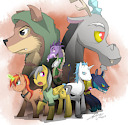
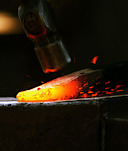
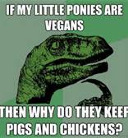
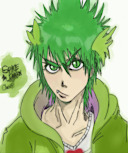
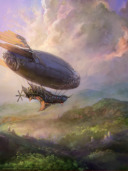


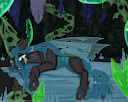





girlfriends. . . . . . heh heh heh
Oh my god YES!!!
I love the Snow Queen, and I've participated in the Snow Queen as play with my acting group - I played The Snow Queen. Best role of my life! XD All this time, however, I've only heard it in Swedish. As I read in English, it hit me how beautiful and perfectly translated the story was. Can't wait for the next part! :)
Amaze profile pic!! :3